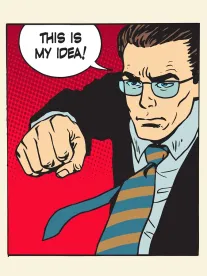In an appeal stemming from the denial of a patent application under § 102(b), the US Court of Appeals for the Federal Circuit reversed the Patent Trial and Appeal Board (PTAB) by holding that the claims’ preambles were claim limitations that overcame anticipation over the cited prior art. In re: Fought, Case No. 19-1127 (Fed. Cir. Nov. 4, 2019 (Newman, J).
The patent application at issue contained two claims, each of which recited the same preamble: “A travel trailer having . . . .” The examiner rejected each claim under (pre-America Invents Act) § 102(b). A first reference, cited by the examiner to reject claim 1, described a conventional truck trailer such as a refrigerated trailer. The second reference cited by the examiner to reject claim 2 described a bulkhead for shipping compartments.
The applicant argued that “travel trailer” recited in the preamble of each claim should be considered a limitation on the scope of the claim and offered extrinsic evidence to define “travel trailer.” The examiner nevertheless maintained the anticipation rejections. The applicant appealed to the PTAB, again arguing that “travel trailer” in the preamble was a claim limitation and that the examiner erred by failing to specify the level of ordinary skill in the art. The PTAB affirmed without addressing the second issue. Applicant appealed to the Federal Circuit
Starting with the preamble issue, the Federal Circuit noted that whether a preamble is a limitation is a claim construction issue. Generally, a preamble “merely states the purpose of intended use of an invention” and is not treated as a limitation. However, a preamble may be a limitation when, for example, a claim relies on the preamble for antecedent basis to support other limitations.
Here, the Federal Circuit found that the recitation to a “travel trailer” was a preamble, notwithstanding that the claim did not use the traditional transitional language between the claim and the body, explaining that the word “having” performed the same function as would be performed by the more conventional transition “comprising.”
The Federal Circuit then found that the recitation of “travel trailer” served as antecedent basis for a term appearing in the body of a claim and should therefore be considered as a limitation. Turning to the definition of “travel trailer,” the Court found that the applicant’s extrinsic evidence supported a finding that “‘travel trailer’ is a specific type of recreational vehicle that includes a living quarters.” According to the Court, the extrinsic evidence demonstrated that the recitation to a “travel trailer” was not merely an intended use, but was instead a structural requirement. Accordingly, the Federal Circuit reversed the anticipation rejections, noting that the cited references did not disclose a travel trailer under this definition.
Finally, the Federal Circuit noted that the examiner did not err in failing to define the level of ordinary skill in the art, explaining that an examiner must only articulate the level of ordinary skill in the art when the applicant argues that the level of ordinary skill would change the result. Since the applicant never made such an argument, the examiner did not err in this regard.
Practice Note: Patent applicants should remember that a claim preamble may constitute a limitation on scope that may be relied on to overcome the application of certain prior art. Moreover, if an applicant wants to force an examiner to define the level of ordinary skill in the art, she must first present an argument that the examiner’s application of prior art would change depending on the level of ordinary skill in the art.



 />i
/>i

